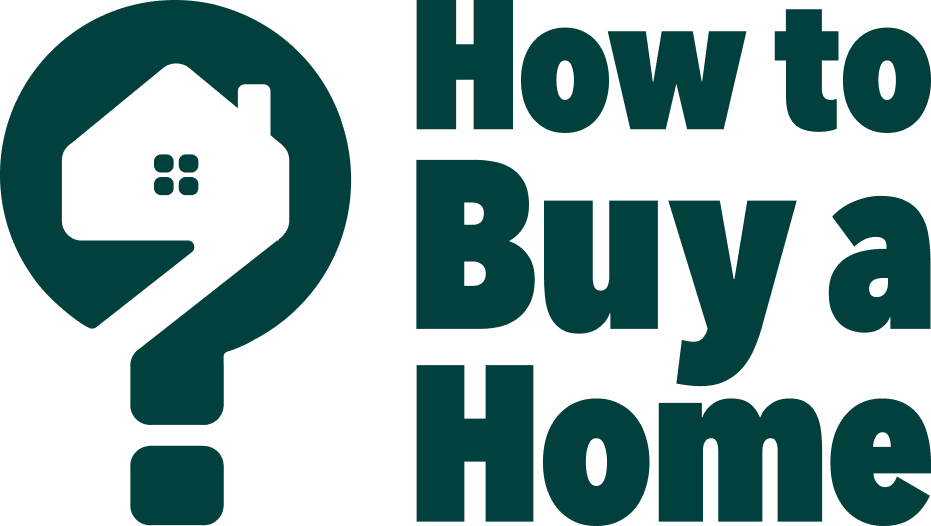
Ever planned on buying your first home, but you’re unemployed? Is it possible to work things out without an income stream coming for two years? To answer those questions, tune in to this episode and hear the real-life story of these first time home buyers who bought their first home WITHOUT two years of job history – straight out of college! Reaching out to individuals with experience helped them buy their first home. And tons of great other nuggets of first-time buyer wisdom can help you with your plan! So if you plan to buy your first property without employment? You may want to tune in to this episode now!
—
Interview With A First Time Home Buyer Who Bought WITHOUT Two Years Of Employment
How To Buy A Home With Less Than 2 Years Of Job History
Buying a home right out of college can be done. This is a real-life first-time home buyer. He’s telling the story of him and his girlfriend, how they were researching buying a home with less than six months out of college and in the adulting workforce world and discovered that they could indeed buy a home without two full years on the job. In fact, his girlfriend stayed in school and was still in grad school when they made this purchase. Let’s read a real story that can help you in your quest to buy your first home. Let’s do it.
—
What is up, everybody? You know what time it is. It’s the best time ever on the show. It’s when somebody else talks instead of me. We’re doing this on Labor Day. Quasi is chilling in his new home. I’m assuming you’re in a new place. What we like to do is check in with our folks who ended up getting a place. Quasi, everyone out there wants to know how to buy a home. They’re super stoked that you’re in a home. What are some of your biggest tips in the entire process for anyone who’s thinking about trying to buy a house?
My biggest tip is when you first even start thinking about wanting to get your own place, whether you’re living with your parents, you’re getting out of school, or you want to have your own place instead of running one, is to do your research. I and my girlfriend did our due diligence, researching how the process went. Neither of us had any idea how you buy a home. Doing my research on that, looking at things online, figuring out stuff with credit, and then eventually looking and leading me to your show was a big help in us being able to accomplish this goal.
For those of you reading, we’re going to get into it. We’re going to talk about Quasi and his girlfriend, where they live, what they do, and all that. I’m tired of listening to podcasts and introductions for twelve minutes before anybody says anything. We got right in the meat. Talk to us about the research. Did you have anybody in your life that you could talk to, or were you doing this all old school on your own?
We didn’t have. My girlfriend’s parents built their own home. My parents moved here from Africa way back when. They bought the house that they live in now, which I grew up in. We had a little bit of guidance from that perspective. As you know, the market is different from when our parents bought their homes or built their homes, and even different from a few years ago. A lot of it was the research that we did on our own, getting on Google, which is a Millennial’s best friend, and figuring out how to do the thing.
That got me super excited. The first generation, both your parents, you and your girlfriend, one built their place and the other one immigrated and bought their place. You’re the first generation that grew up here that bought a new place, didn’t build one from scratch, or come in. That’s awesome. How did your Google search go?
We figured we wanted to get into a place at the beginning of the year. It was around January or February. I had had a couple of conversations with my dad because he was always like, “Before you even want to rent something, I would rather you stay and live in the house before you would waste money renting anywhere.” That kickstarted off with me. Me and my girlfriend, our first thought were that we wanted to move into the Albany area, which is where we are now, which is where I grew up. We wanted to find a place where the two of us could have our own. We initially were thinking about renting and then I had a conversation with my dad and I spoke with her about it.
We were like, “Let’s see what we can do here.” Your show was probably one of the first things I saw, but I knew before anything else that your show reinforced that credit was the biggest thing that you had if you were going to take out a mortgage. That kickstarted off with me. I started following your show. I don’t even remember what episode it was. It wasn’t in the beginning. It wasn’t the most recent one, but I was reading one of them and you had said, “Most of you probably go to the beginning of the show and read it all the way through.” You advised us to bounce back and forth, read an old one, and then a new one, and then an old one and a new one.
It was funny because after I read a couple, I’m neurotic in a way where I want to read things from the beginning to the end. Like Survivor, I started watching in 2019, 2020, or something like that. I watched the first episode that was on Netflix. It was 28 or something. I went back and watched the first season of Survivor all the way to the end. I wanted to treat it like that. I took your advice. Questions would pop up in my head regularly and I’d look and be like, “Let’s see what this title, if this would pertain to the question I have.” It worked out that way that I was able to bounce back and forth and figure stuff out as I went.
I am seriously going to go back because I redid one of the early episodes. I’m going to redo another one because my wife and I are like you. We are completists. Were a couple of years late on Breaking Bad and then, it was like nothing else for a month. It was every single night, every episode in order. The difference here is that I am trying to give current market advice. I go back and read my tax episode and I’m like, “Don’t read. It’s all changed. Everything’s different now.” Now that we got these great tips, that’s amazing. I love that your parents were trying to make sure, even telling you to stay at home.
That is a great tip for a lot of people. If you get enough guidance, research, education, and overall empowerment, sometimes you don’t go out and get that apartment right away as much as you want to. You might be able to stick it out for 1 year or 2 at home. That was some great advice you had going in. Tell us about your journey. How long had you been employed before you started thinking about this? Did you have the full two years?
[bctt tweet=”The two-year mark isn’t really necessary if you go into a profession you went to college for.” via=”no”]
No. It’s funny that you bring that up because I was going to mention something about that. My girlfriend and I graduated undergrad. She graduated earlier in 2021, but I graduated in December. It was pretty much the beginning of the year. We wanted to start looking at a place right after we got out of school. I was a Construction Management major. Now I’m an assistant project manager at a general contracting firm in Albany. I interned with them in 2021 for about four months because it was something I needed to do to complete my curriculum at Utica University where I went. I had done that and then I started working with them in January of 2022. I had some construction background.
I did some professional fire restoration, fire cleaning, and reconstruction. I only had, when we started looking, probably a combined six months of experience in the field, but something I did learn was when we were looking to finance our loan and get that mortgage, I don’t know if it was a credit union type of thing or if this was a fun fact that I may have found without realizing it. They told me that the two years mark that they say you need isn’t necessary if you go into a profession that you went to college for.
If you got a degree for, say being a veterinarian and then you became a veterinarian, usually, the banks or whoever you’re loaning from, I don’t know if it’s just federal credit unions because that’s who we got our mortgage from. That was a fun fact that I had learned along the way that you didn’t need to necessarily have those two years, but you could still do it that way.
That is a huge one. I’m tentative to talk about that a lot on the show because it’s different everywhere and it’s different with every bank, but there is now becoming this general rule. Again, for those of you who are completists like Quasi here and you are re-binging this whole thing and you’re reading this and you’re two years behind, if that’s the case, it might be different in 2025.
In 2022, if you are going into something where you are graduating or if you are even changing careers, if you have either a new contract with that new career, or if you’re coming directly out of college, this is a huge thing. A lot of times, they’re going to count internships. They’re going to count all that stuff. Especially if you’re going into the same field, there are a lot of loans that you can get. You started with the loan process. What were your next steps? How long did you look online for houses before you went and got in your car?
We started looking at all the sites like Realtor.com and Zillow probably at the beginning of 2022, January, February, or March. We had gotten to the point where we think we can take a step forward. Before we even started getting in our car and looking around, we had started looking at a realtor that we want to go with.
Another piece of advice I took from your show is that we’d interview three different realtors. Before that, I talked to a couple of them. I started hanging up with former bosses, former colleagues, and stuff like that, seeing if they had any recommendations. I took two recommendations. One I got from somebody I had worked with in the past and then one from my coworker. We interviewed them.
I reached out to you because you say on the show that you have your crew of unicorns. I know that you’re on the West Coast. I didn’t know if you had any connections over here. Funny enough, you did. It was right after we had met with the second realtor. It was a husband and wife. They worked at the same broker that the realtor we went with worked at. Right after our interview with them, you emailed me back and sent me the contact to Margaret. Shout out to her because she was amazing through the whole process.
I and my girlfriend love her. She helped us a lot through it. You had reached out to us about her and we were trying to figure out who we wanted to go with the two we had interviewed. You came to us with her and you set us up on email. We reached out to her and we set up a meeting with her. It was funny, we had just gone to that broker’s office and then three days later, we were going right back to the office to meet with a different realtor.
We talked with her for probably fifteen minutes. We were like, “We got to go with her.” She had that mix of experience, but she wanted to help out first-time home buyers. We thought she was the perfect fit for us. She helped us kickstart our journey of figuring out what we wanted, where we wanted to live, and how we get to that point.

I am on West Coast, but my family is from Buffalo. I was born there. It’s been several years of the show now and it’s been rough for me. I tell people two things, interview, and there’s a chance I might have somebody for you in the area, but it’s tough to find that perfect fit of for a first-time home buyer, experienced who wants to work with you. I remember the first time I talked to Margaret, I was like, “I got a good Albany person.” I was excited. It warms my heart to hear the stories that you guys pulled off.
I’m glad. I want people to feel comfortable. Check with the unicorns, that’s great but check on your own, too. I’m trying to do some matchmaking. You’re a bright guy. You did your research on your own, but getting that leg up is such a huge difference in what you’re trying to do. It’s Labor Day. I’m sweating my face off. That’s awesome. Speaking of sweating things, what were you sweating during the process? Did anything jump out at you and freak you out? Did you have any scares? We all want to know.
The biggest scare overall was probably having to put in multiple offers before we could get any feeling with anything. Contrary to that statement, we got lucky because we only put two offers on a house. Before we put an offer on this one, there was one other prior to this one. We didn’t get that one, but we ended up getting this one. It worked out pretty well for us. Aside from that, not thinking that we had enough, but not knowing if we had enough for the closing cost, down payment, the years’ worth of taxes, and all that stuff that we learned on the way.
The year of taxes for escrow was the biggest thing because, throughout my research, that was something I didn’t know that you would need until we had met with one of the realtors we talked to. Along the journey, with everyone we talked to all the different lenders, banks, the realtors, we learned a little bit from each person which helped out.
That’s a big one. For those of you reading who haven’t gotten to the episode yet about closing costs, it is the most frustrating thing as a professional because we can’t give you the answer. It’s 1% to 1.5% in fees. Depending on what state you live in and what time of the year it is, that’s what’s crazy. Part of your closing costs is an entire year of taxes. Especially in California, that’s 1% of your purchase price.
That’s $4,000 if you’re buying a $400,000 place. That can be totally different if you’ve planned. I have my perfect 5% down plus a little bit extra, but now you need to put $4,000 extra down. Those closing costs can be a biggie. I’m glad that you figured it out. Where did you guys end up price point-wise? Were you in the $200,000s, $300,000s, $400,000s, $500,000s, $600,000s?
We were in the $200,000s. The top of our price range we had figured when we started looking was that we didn’t want to go above $300,000. Anywhere between $220,000 and $300,000 was the price point we were looking for. We ended up getting our place at around 2.5%.
For your approval, did you get your approval based on the average salary for that career that you had gotten the degree in, or did you have the job in place?
I have the job in place. It was based off of my salary.
How many months had you been working there paid before you got the loan approval? Was that 4 months, 5 months?
[bctt tweet=”One of the biggest things if you’re buying a flip is getting some guidance and information because that’s something you definitely could do and pick the inspector’s brain if you choose to go with an inspection and not waive it.” via=”no”]
4 or 5 months.
There is a logic to it. I understand why the banks think so, but logically, if you graduate with a degree, it doesn’t make sense that you need to have two whole years outside of college before they’re going to say, “Now you can get a loan.” That makes great sense. Everybody who’s buying a home with a partner wants to know, what were the things you were looking for? What were the things she was looking for? Where did you compromise?
There wasn’t much compromise. Between the two of us, in a way, we were both not picky. We had communicated over a couple of things a lot, but the biggest things were that we wanted a decent-sized backyard because she has a big family. My family’s here in Albany. For entertaining purposes with all our friends, we wanted a decent-sized yard where we could entertain. We wanted three bedrooms, which along the way, I thought we would have to compromise on that, but not as much as we did because there were a lot of three-bedroom homes in our price point that we would potentially be able to get.
One big thing, too, was that we didn’t want any carpets, but the funny thing about that is that our stairs and our entire second floor are pretty much carpeted. That was something we compromised with each other on. We loved the house. It’s a beautiful place. It was sold to us by a contractor because it was a flip. They did a good job. It’s a nice sleep place.
People want to know about that. What are your tips, red flags, and good things about buying a flip, especially for someone who studied some of this in school, too?
One of the biggest things if you’re buying a flip is getting some guidance and information from maybe your parents, or somebody who’s bought a house. If you were to know any contractors, that’s a big thing. Maybe have them come to see the house. That’s something you could do if you had gotten a private showing with your realtor. Pick the inspector’s brain if you hopefully do choose to go with an inspection and not waive it. They have a lot of knowledge of flipped houses and houses in general.
Have a conversation with them and ask them as many questions as possible when you’re looking at things. Also, if it’s possible, you can talk to the seller and pick their brain as well. There’s stuff that’s going to be in the disclosure and then stuff you may be able to ask in general. Making sure that it’s flipped well and there’s nothing that’s hidden and your inspection goes well. If you need any further inspections, pass the general one to get that.
That’s great advice. For the readers out there who have never gone through the process before, when you put your money down and you get an offer accepted, you have an opportunity to do an inspection. After that inspection, you have an opportunity to get individually specified pros. If the general inspection notices some plumbing, electrical, or roofing, you can get those guys out there, too, and have them come back for a secondary inspection. All of that can happen before you end up deciding to move forward completely with the house.
In most places, you’re still protected with an option period, a contingency period, or a due diligence period. It’s important that you understand and realize that when your offer isn’t accepted, you’re not locked in and your inspection isn’t telling you, “This is what you got too bad.” That’s awesome. That’s exciting. Anything else you want to share with our audience about buying a house? We appreciate all your wisdom. I picked your brain a little bit here. Any other little bits and pieces or have we got everything from you?
The biggest thing is, in this market, try to be patient, but also not too patient. Make sure you get a strong team behind you and do your due diligence in researching how to buy a home. That helps a lot with the conversations you can have with your realtor, your partner, or whoever you may be planning to buy the house with, whatever team you are doing it with. You got podcasts now that go through the alphabet of different terms that you can learn with buying a house and all that type of stuff. That’s a useful tool. Make sure you soak up as much knowledge as possible so you can make the process as seamless as it can be for yourself.

I couldn’t have said it better myself. Trust in your team. The more research you do ahead of time, the more collaborative it can become. That’s awesome. Thank you very much. Congratulations to you. I love it. Having somebody out there. We’ll talk to you later. Thank you.
—
Plenty of good nuggets in there for you if you’re thinking about trying to buy your first home and some great news. I’m so excited. No matter where you are in the buying process, there are some great tips in there. He used the Millennial’s best friend and started with Google, found the show, and realized that maybe he was a bit of a completist. If you read this one, jump around, and pick the titles that are best for you. It is the best way to read.
By doing his preparation and figuring out what they needed to do, they were able to take advantage and do something pretty much on their own. They had lots of encouragement from their families, but it had been so long since they had done this. One of the sets of parents never bought a home. They built their home. Quasi’s parents immigrated and bought their home so long ago that they didn’t know how to do it now. Thankfully, they put the time in and the research.
One of the most important things you can get from that is that if you are in college and you go into a career that’s directly related to the field that you were studying in college, for some lenders, you don’t need the two years. That’s a huge one. A job in the field where you get your degree and you can get yourself a loan without having to wait two years. That’s two years you’re not spending money on rent. That’s two years that you’re going to have a forced savings account. That’s two years that you get a fixed income right away.
It doesn’t seem like much, but if you look back on it, when you’re 35, if you bought your first home at 22 or 23, you’re going to have a ton more equity. If you’ve got questions, go to HowToBuyAHome.com. Everything you need is there. We got the first-time home buyer starter kit to get you going wherever you are in the process. If you’re digging this information, please leave a review on Apple, Spotify, or Google. The more reviews we get, the more people find it, and the more people that we can help.
I know we’ve had tons of stories of 19-year-olds and 21, 22, 23-year-olds buying homes. You’re thinking, “What do these guys know that I don’t know?” It’s pretty simple. Everybody knows what they don’t know. You don’t know what you don’t know. When it comes to buying a home, you can’t listen to someone who’s done this before, because the rules are changing all the time. What’s stopping you from finding out what you can and can’t do? What’s the worst thing that can happen? You’re going to find out that you don’t qualify now. You already think that anyway. You find out what you supposedly already know, but maybe that’s not the case. When you officially ask someone, the worst thing that can happen is that they can verify what you think is going on, but they can give you a plan that’s going to move you forward out of that situation faster. The speed of your plan is crucial when it comes to buying your first home.
Every single one of the first-time home buyers that I’ve worked with over the last several years here in Southern California, as well as all over the country with the show, they all say the same thing, “I wish I had started planning earlier.” That’s because once they figure out how this whole thing works, they realize that the sooner that you have a plan together, the more options you get when you buy and the more options means a better deal for you. If you’re renting and you got a decent job, it’s not if you can buy a home, it’s when. Your when is sooner when you get yourself a real plan. You can do this.
Important Links
- Realtor.com
- Zillow
- Apple – How to Buy a Home
- Spotify – How to Buy a Home
- Google – How to Buy a Home
This podcast was started for YOU, to demystify things for first time home buyers, and help crush the confusion. After helping first timers for over 13 years, I knew there wasn’t t a lot of clear, tangible, useable information out there on the internet, so I started this podcast. Help me spread the word to other people just like you, dying for answers. Tell your friends, family, and perhaps that random neighbor you REALLY want to move out about How to Buy a Home! A really easy way is to hit the share button and text it to your friends. Go for it, help someone out. And if you’re not already a regular listener, subscribe and get constant updates on the market. If you are a regular and learned something, help me help others – give the show a quick review in Apple Podcasts or wherever you get your podcasts, or write a review on Spotify. Let’s change the way the real estate industry treats you first time buyers, one buyer at a time, starting with you – and make sure your favorite people don’t get screwed by going into this HUGE step blind and confused. Viva la Unicorn Revolution!
Instagram @DavidSidoni
Tik Tok @howtobuyahome

